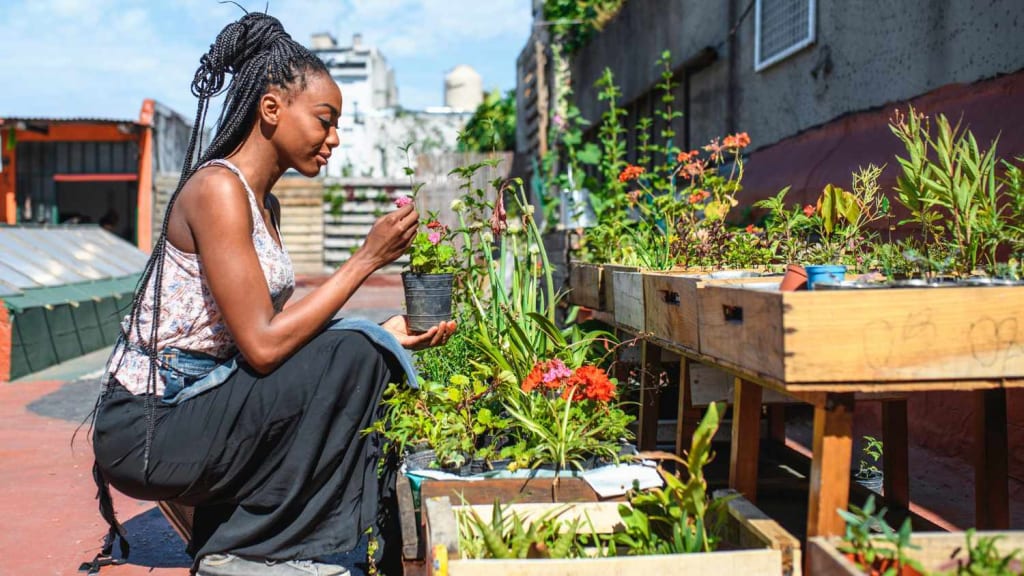Gardeners
This Tiny Mistake Costs Gardeners $3,000 a Year

Gardening can be a fulfilling and rewarding hobby for many people. It provides an opportunity to connect with nature, grow your own food, and beautify your surroundings. However, even the most experienced gardeners can unknowingly make mistakes that end up costing them a significant amount of money. In this article, we will discuss a tiny mistake that has been proven to cost gardeners an astonishing $3,000 each year. By understanding this common error and taking steps to avoid it, gardeners can save money and enjoy a more successful gardening experience.
The Culprit: Overwatering
The culprit behind this costly mistake is a simple one—overwatering. Many gardeners believe that the more water they provide to their plants, the better. However, excessive watering can lead to a myriad of problems that not only harm the plants but also drain financial resources.
1. Waterlogged Soil:
Overwatering causes the soil to become waterlogged, depriving plant roots of oxygen. As a result, the roots may rot, leading to plant diseases and ultimately plant death. The cost of replacing dead plants and investing in new seedlings can quickly add up.
2. Increased Pest and Disease Risk:
Waterlogged soil creates a favorable environment for pests and diseases. Fungi, bacteria, and harmful insects thrive in wet conditions, leading to the potential for infestations and infections. This often requires expensive treatments, pesticides, or fungicides to rectify the issue.
3. Higher Water Bills:
Overwatering not only damages plants but also impacts the gardener's wallet. Excessive watering wastes water resources, leading to higher utility bills. This is especially true for regions where water scarcity is a concern. Conserving water by employing proper watering techniques can significantly reduce expenses.
Preventing Overwatering:
Thankfully, preventing overwatering is a relatively simple task that can save gardeners thousands of dollars annually. Here are some practical steps to avoid this costly mistake:
1. Understand Plant Watering Needs:
Different plants have varying water requirements. Research the specific needs of each plant in your garden. Factors such as the plant species, soil type, weather conditions, and stage of growth all influence watering needs. By tailoring watering practices to individual plants, you can avoid overwatering and save money.
2. Monitor Soil Moisture:
Instead of relying on a fixed watering schedule, use a moisture meter or your finger to assess soil moisture levels. Stick your finger about an inch into the soil. If it feels moist, hold off on watering. Only water when the soil feels dry to the touch. This method ensures that plants receive adequate hydration without excessive watering.
3. Employ Proper Irrigation Techniques:
Consider using efficient irrigation methods such as drip irrigation or soaker hoses. These systems deliver water directly to the roots, minimizing water loss due to evaporation and runoff. Additionally, mulching around plants can help retain soil moisture, reducing the need for frequent watering.
4. Observe Signs of Overwatering:
Pay attention to signs of overwatering, such as wilting, yellowing leaves, or the presence of fungus or mold. Adjust your watering practices accordingly. It's better to slightly underwater than to overwater, as most plants can recover from slight dehydration, but the damage from excess water is often irreversible.
Conclusion:
Gardening is a delightful and enriching experience that shouldn't break the bank. By avoiding the tiny mistake of overwatering, gardeners can save up to $3,000 a year. Understanding the water requirements of individual plants, monitoring soil moisture levels, employing efficient irrigation methods, and observing signs of overwatering are crucial steps to prevent this costly error. With a little extra care and attention, garden
ers can enjoy healthier plants, conserve water resources, and keep their wallets happy.





Comments
There are no comments for this story
Be the first to respond and start the conversation.